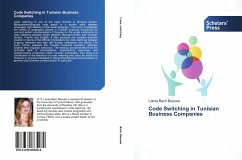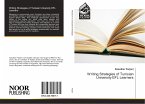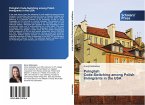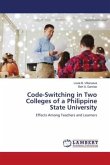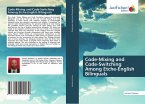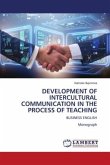Code switching is one of the major themes in bilingual studies. Bilinguals/multilinguals code switch in a perfect ease between languages and dialects of the same language. This study investigates the variety of languages chosen in Tunisian business companies for oral and written communication. It focuses on the social constraints on code switching between Arabic (Modern Standard Arabic and Tunisian Arabic), French and English. It also presents the complex linguistic situation in terms of the different motivations for code switching between in-group members and also with foreign colleagues and clients. The study further explores the Tunisian business speakers' attitudes towards their linguistic behaviour. The findings are generated from the recorded data of conversations, observations, interviews, and questionnaires conducted inside Tunisian businesses. This study is a contribution to the literature on code switching and could be helpful for students or anyone interested in bilingual/multilingual communication in general and business communication in particular.

